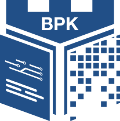Predatory publishing
Predatory publishing (write-only publishing, deceptive publishing) – a business model of "scientific" publishers (nowadays mostly publishing in an open model), which involves charging authors for publication without checking articles for quality and legality and without providing the standard level of editorial and publishing services that legitimate scientific journals provide.
Predatory journals and publishers are entities characterized by false or misleading information, deviations from editorial and publishing best practices, lack of transparency, and/or use of aggressive and indiscriminate acquisition practices.
A predatory publisher:
- scams scientific texts, demanding high fees for their prompt publication,
- actual publication costs are often much higher than claimed,
- claims to review and edit publications, but does not actually do so,
- does not submit articles to review procedures or the review process is inadequate,
- does not check whether the publication is plagiarized,
- aggressively recruits publications and editorial board representatives,
- overstates journal evaluation indicators and/or posts imaginary quality indicators.
Vanity press:
- a publisher does not promise reviews and does not perform quality control,
- does not handle editing, and authors are relied upon to do their own formatting and spell-checking,
- authors pay for the publication of their work with either money or publication rights,
- works are published in self-publishing sales,
- the publisher usually promises authors a share of the profits, but physical copies of books carry very high prices and are generally out of print.
Vanity press usually targets young scientists with no experience who have just graduated and written a thesis. The publisher offers to publish their work in book form for free.
However, if the author later wants to publish his research in the form of an academic paper, he generally cannot do so because of his legal agreement with the vanity press.
The predatory publishers and "vanity press" usually operates legally but unethically and often dishonestly.
Hijacked journals / websites – duplicate or fake websites of real journals, using the title, ISSN number and other information of a reputable journal, usually created to extort money. Their publishers act fraudulently and illegally.
Scammers
- impersonate scientific journals, scam texts and money,
- forge official websites of publishers and reliable scientific journals, use their titles, publication footers, DOI identifiers, ISSNs, editorial board composition,
- they include names of eminent scientists in a given field, who often do not even know about it,
- provide false data about the journal,
- cite an indicator referred to as "IF" but having nothing to do with citations from the Web of Science database – sometimes point out that IF is based on internal calculations and "independent" rankings conducted by the publisher,
- provide various variations of the name of the index, such as International IF, Influence IF, or barely legible annotations/notices about the basis for calculating the IF for a given title,
- report as current the index values of previous years, when the journal had a much higher index.
Similar misrepresentations apply to the indexing of a journal in databases. For example, in databases you can find only older issues of a given title, while current issues do not meet the requirements (technical or substantive) of indexing in the database,
as a result, works published in them are not visible and findable.
Fake websites look very convincing; visually they mimic the pages of copied publications.
Journals that have had their identities stolen often put warnings about scammers on their pages themselves or explicitly disassociate themselves from them; unfortunately, scammers do the same.
Credible journals – information sources – examples
-
Journal Citation Reports – primary source of information on journals and their publishers, access from the Web of Science (WoS) database / Products tab,
-
Current Research Information System in Norway CRIStin – Norway's national scientific information system (Royal Ministry of Education and Research) – documents all scientific publications by Norwegian researchers and complements the BIBSYS database, which focuses on storing and retrieving research, teaching and learning data. CRIStiis the first database of its kind in the world. The CRIStin system includes the Norwegian Science Index, a comprehensive government bibliographic database designed to cover and evaluate all serious channels of academic publications worldwide, including academic journals and publishers,
-
Think Check Submit (new window) service,
-
Eaton Sarah E. Avoiding predatory journals and questionable conferences : a resource guide. (new window)
If in doubt, contact Information Services Department.


